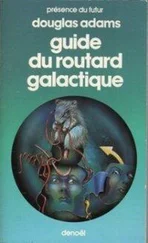Douglas Adams - Last chance to see
Здесь есть возможность читать онлайн «Douglas Adams - Last chance to see» весь текст электронной книги совершенно бесплатно (целиком полную версию без сокращений). В некоторых случаях можно слушать аудио, скачать через торрент в формате fb2 и присутствует краткое содержание. Жанр: Фантастика и фэнтези, на английском языке. Описание произведения, (предисловие) а так же отзывы посетителей доступны на портале библиотеки ЛибКат.
- Название:Last chance to see
- Автор:
- Жанр:
- Год:неизвестен
- ISBN:нет данных
- Рейтинг книги:5 / 5. Голосов: 1
-
Избранное:Добавить в избранное
- Отзывы:
-
Ваша оценка:
- 100
- 1
- 2
- 3
- 4
- 5
Last chance to see: краткое содержание, описание и аннотация
Предлагаем к чтению аннотацию, описание, краткое содержание или предисловие (зависит от того, что написал сам автор книги «Last chance to see»). Если вы не нашли необходимую информацию о книге — напишите в комментариях, мы постараемся отыскать её.
Last chance to see — читать онлайн бесплатно полную книгу (весь текст) целиком
Ниже представлен текст книги, разбитый по страницам. Система сохранения места последней прочитанной страницы, позволяет с удобством читать онлайн бесплатно книгу «Last chance to see», без необходимости каждый раз заново искать на чём Вы остановились. Поставьте закладку, и сможете в любой момент перейти на страницу, на которой закончили чтение.
Интервал:
Закладка:
The wardens' but was a fairly basic wooden building with one large room which served as a kitchen, dining room, sitting room and work room, and a couple of small dormitory rooms full of bunks. There were two other field workers already installed, the eccentrically named, or rather spelled, Phred, who turned out to be the son of Dobby and Mike, and also Trevor. They greeted us quietly and without enthusiasm and let us get on with our unpacking.
Soon we were told that lunch was ready, and we realised that it was time for us seriously to try to improve our general standing around the place. Clearly our hosts did not want to have a bunch of media trendies rampaging round their island frightening the birds with their video cameras and Filofaxes, and they were only slightly mollified by the fact that all we had was one tiny Walkman tape recorder, and that we were being very meek and wellbehaved and trying not to order gin and tonics the whole time.
The fact that we'd actually brought some beer and whisky with us helped a little.
I suddenly felt extraordinarily cheerful. More cheerful, in fact, than I had felt for the whole of our visit to New Zealand so far. The people of New Zealand are generally terribly nice. Everybody we had met so far had been terribly nice to us. Terribly nice and eager to please. I realised now that all this relentless niceness and geniality to which we had been subjected had got to me rather badly. New Zealand niceness is not merely disarming, it's decapitating as well, and I had come to feel that if just one more person was pleasant and genial at me I'd hit him. Now things were suddenly very different and we had work to do. I was determined to get these surly buggers to like us if it killed me.
Over our lunch of tinned ham, boiled potatoes and beer we launched a major conversational assault, told them all about our project and why we were doing it, where we'd been so far= what animals we had seen and failed to see, whom we had met, why we were so keen to see the kakapo, how much we appreciated their assistance, and how well we understood their reluctance to have us there, and then went on to ask intelligent and searching questions about their work, about the island, about the birds, about Boss, and finally, why there was a dead penguin hanging on the tree outside the house.
This seemed to clear the air a little. Our hosts quickly realised that the only way .of stopping us talking the whole time was to do some talking themselves. The penguin, Phred explained, was traditional. Every 28 February they hung a dead penguin on a tree. It was a tradition that had only started today and they doubted if they would keep it up, but in the meantime at least it kept the flies off the penguin.
This seemed a thoroughly excellent explanation. We all celebrated it with another glass of beer and things began at last to move along with a bit more of a swing. In an altogether easier atmosphere we set out into the forest with Arab and Boss to see if we could at last find one of these birds we had travelled twelve thousand miles to see.
The forest was rotten. That is to say that it was so wet that every fallen tree trunk we had to clamber over cracked open under our feet, branches we clung on to when we lost our footing came away in our hands. We slipped and slithered noisily through the mud and sodden undergrowth, while Arab stalked easily ahead of us, just visible through the trees in his blue plaid woollen windcheater. Boss described a chaotic orbit around him, hardly ever visible at all except as an occasional moving flash of blackness through the undergrowth.
He was, however, always audible. Arab had fastened a small bell on to his collar, which rang out clearly through the clean, damp air, as if an invisible and deranged carol singer were cavorting through the forest. The purpose of the bell was to allow Arab to keep track of where Boss was, and also to let him know what the dog was up to. A flurry of agitated rings followed by silence might indicate that it had found a kakapo and was standing guard over it. Every time the bell fell silent we held our breaths, but each time the clanging started up again as Boss found a new avenue in the undergrowth to plunge through. From time to time the bell would suddenly start to ring out more loudly and clearly, and Arab would summon Boss back to him with a quick shout. There would then be a slight pause, which on one occasion enabled Mark and Gaynor and me to catch up with them.
We came tumbling breathless and wet out of the forest to a small clearing, where we found Arab squatting beside Boss stuffing a small wad of mossy earth up into the cavity of the bell to dampen its sound a little. He squinted up at us with his slow shy grin and explained that the bell mustn't be too loud or it would only frighten the kakapo away - if there were any in the area.
Did he think there were any around? asked Mark.
'Oh, they're certainly around,' said Arab, pulling his fingers through his streaming wet beard to clean the mud off them, `or at least, they've been around here today. There's plenty of scent. Boss keeps on finding scent all right, but the scent goes cold. There's been quite a lot of kakapo activity here recently, but not quite recently enough. He's very excited though. He knows they're definitely around.'
He made a fuss of Boss for a few moments, and then explained that there were major problems in training dogs to find kakapos because of the terrible shortage of kakapos to train them on. In the end, he said, it was more realistic to train the dogs not to track anything else. Training was simply a long and tedious process of elimination, which was very frustrating for the dog.
With one last pat he let go of Boss again, who bounded back off into the bush to carry on snuffling and rummaging for any trace of the one bird he hadn't been trained not to track. Within a few moments he had disappeared from sight, and his muted bell went clanking off into the distance.
We followed a path for a while, which allowed us for the moment to keep up with Arab; while he told us a little about other dogs which he had trained to be hunting dogs, for use in clearing islands of predators. There was one dog he was particularly fond of, which was their top hunting dog, a ferocious killer of an animal. They had taken it all the way to Round Island, near Mauritius, with them a few years ago to help with a big rabbit clearance programme. Unfortunately once it got there it turned out to be terrified of rabbits and had to be taken home.
It seemed to Arab that most of his recent life had been spent on islands, which was not just a coincidence: island ecologies are so fragile that many island species are endangered, and islands are often used as last places of refuge for mainland animals. Arab had himself tracked many of the twenty-five kakapos that had been found on Stewart Island and airlifted by helicopter in soundproof boxes to Codfish. They always tried to release them in terrain that corresponded as closely as possible to that in which they had been found, in the hope that they would re-establish themselves more easily. But it was very hard to tell how many of the birds were establishing themselves, or even how many had survived here.
The day was wearing on and the light was lengthening. Excitingly, we found some kakapo droppings, which we picked up and crumbled in our fingers and sniffed at in much the same way that a wine connoisseur will savour the bouquet of a fine New Zealand North Island Chardonnay. They have a fine, clean, herbal scent. Almost as excitingly we found some ferns which a kakapo had chewed at. They clip it and then pull it through their powerful bill so that it leaves a neat ball of curled up fibre at the end.
A lot less excitingly it was becoming very clear that the day was going to be completely free of any actual kakapos. As the evening gathered in and a light rain began to fall, we turned and trudged the miles we had come back through the forest. We passed the evening in the but making friends with the whisky bottle and showing off our Nikons.
Читать дальшеИнтервал:
Закладка:
Похожие книги на «Last chance to see»
Представляем Вашему вниманию похожие книги на «Last chance to see» списком для выбора. Мы отобрали схожую по названию и смыслу литературу в надежде предоставить читателям больше вариантов отыскать новые, интересные, ещё непрочитанные произведения.
Обсуждение, отзывы о книге «Last chance to see» и просто собственные мнения читателей. Оставьте ваши комментарии, напишите, что Вы думаете о произведении, его смысле или главных героях. Укажите что конкретно понравилось, а что нет, и почему Вы так считаете.







